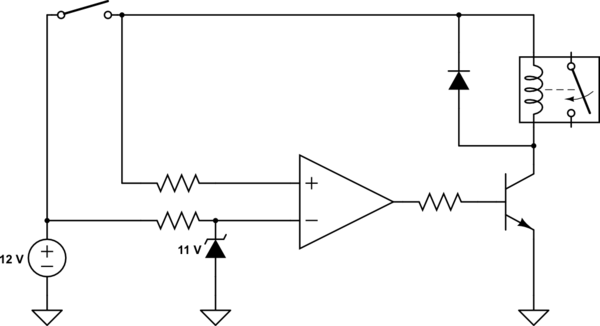I'm powering a relay from a 12v power source, however this source does not immediately turn off, rather falls gradually for a 'fade' rather than straight off.
Unfortunately this makes my relay chatter multiple times in rapid succession open/closed just before it opens for the last time until next power on, as the voltage is just fluctuating around the critical level.
How can I avoid this? I tried some capacitors and while it helped I still wound up with it chattering at the end (Although slightly less).

